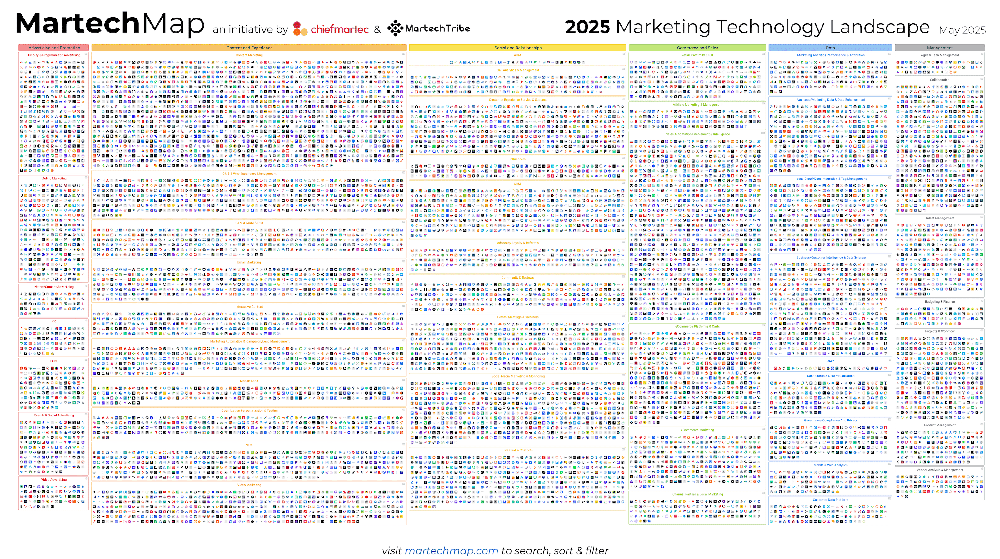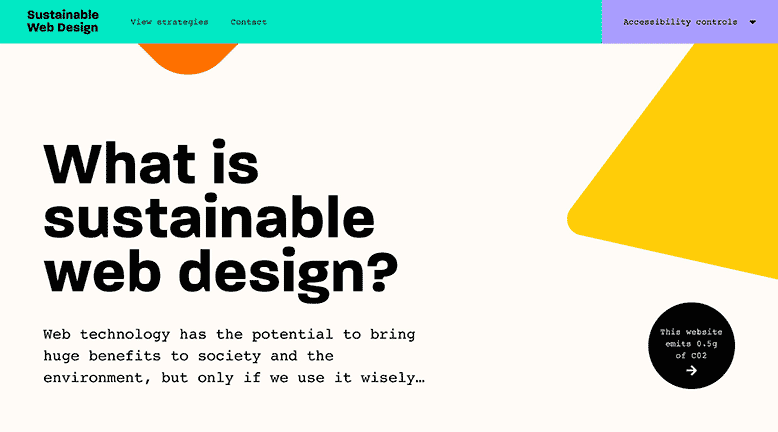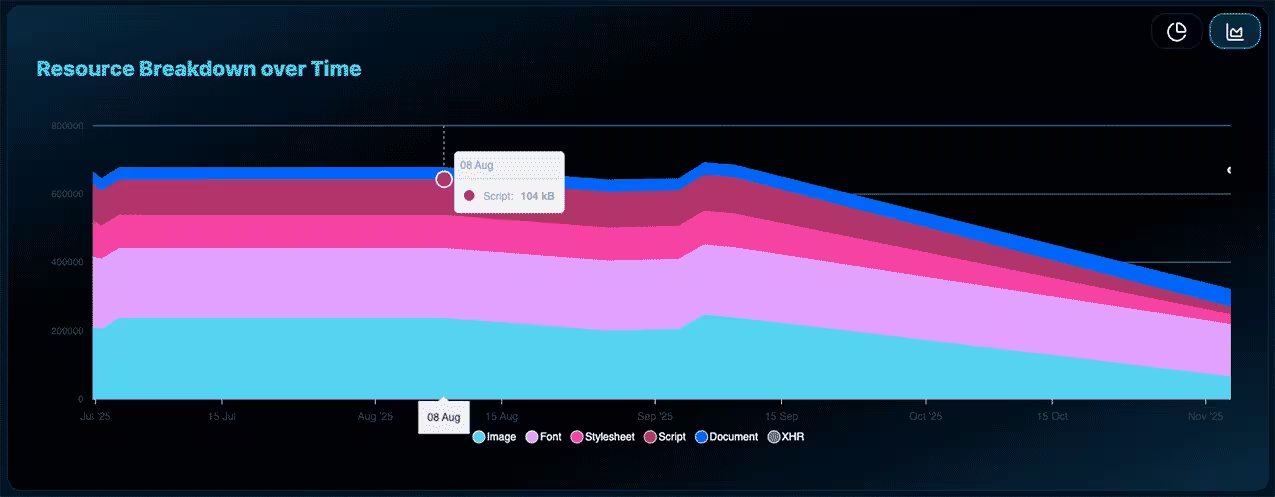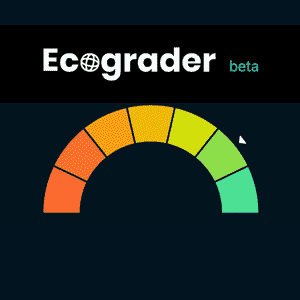Build a More Sustainable Marketing Stack
Use these tools to create a more sustainable marketing stack that prioritizes people and the planet across your digital products, services, campaigns, and programs.
Marketers can choose from an overwhelming number of digital products and services to run effective campaigns. Your marketing toolkit probably has anywhere from a handful to several dozen software products and services you use to:
- Manage SEO, publishing, and digital experiences across channels
- Create and run advertising or social media campaigns
- Understand and engage with target audiences
- Solicit and track earned media
- Track and measure campaign performance
- And so on…

Building a More Sustainable Marketing Stack
In fact, ChiefMartec estimates that there are over 15,000 such tools available (see image above), including an explosion of AI-powered platforms.
- However, very few of these companies include clear sustainability claims or features as part of their product or service’s value proposition.
- Fewer still publicly commit to climate and environmental justice in their company operations.
- Plus, some might undermine privacy, security, or other important aspects of your marketing.
Digital Supply Chains
Related content: Third-party providers can make or break your marketing efforts. Learn how to make more responsible digital supply chain decisions in this guide.
Yet, more marketers shift their practices every day to align with purpose, trust, and an increasingly sustainability-focused customer base. Sustainable digital marketing practices are on the rise. So, why don’t the tools we use follow suit?
To research this article, we scoured the internet looking for marketing technology organizations that have made public sustainability claims or offer specific sustainability features in their digital products or services. Swap out traditional tools with some of these options for a more sustainable marketing stack.
The Enshittification of Marketing
Related content: Not sure why you might want to build a more sustainable marketing stack? Learn how enshittification undermines marketing success across channels in this article.
Three Pillars of Sustainability
We used environmental, social, and economic criteria to review products and services that might make up a more sustainable marketing stack. This criteria included:
- Environment: An environmentally responsible company that commits to reducing or improving the environmental impact of its products, services, and operations.
- Social: A socially responsible organization offering products and services that advance social justice and equity in some way.
- Governance/Economic: The company transparently employs responsible economic practices in how it governs and shares the benefits of its products and services.
In all examples, we looked for public-facing commitments and, if possible, third-party validation of these commitments through certifications to avoid digital greenwashing and other potential sustainability pitfalls.
Unfortunately, there’s no one-size-fits-all sustainable marketing stack that meets the criteria above. However, a growing number of digital products and services are rising to meet this need. We aim to capture some of them below.
Also, this is not a comprehensive list of everything available on the internet. If you think we missed something important, please let us know.
We want to set the example with EcoSend and ensure forms are efficient, beautiful, sustainable, and accessible for everyone. The Mightybytes team highlighted a wonderful opportunity for us to make an improvement that could positively impact the experience of visitors across millions of pageviews.
— James Gill, CEO, EcoSend

Email Marketing
Despite the scourge of spam and challenges posed by enshittification, email remains an effective marketing channel. Unfortunately, when it comes to building a more sustainable marketing stack, very few email platforms make meaningful sustainability claims and follow those up with clear actions.
However, one platform in this category really stands out.
EcoSend
EcoSend offers a variety of commonly used email marketing tools such as audience segmentation, automation, campaign tracking, and email template and website form builders.
ESG/Sustainability Features
- Environment: EcoSend has no shortage of sustainability policies for the climate-conscious email marketer:
- EcoSend automatically plants trees through a verified provider to offset your campaigns.
- The platform includes a carbon calculator and environmental impact dashboard. Plus, the platform runs on green infrastructure.
- The company also makes clear sustainability claims, provides regular sustainability reports, and has several other green business certifications in addition to operating as a Certified B Corp.
- Philanthropy: The company backs carbon capture initiatives with part of its profits.
- Privacy: Built with subscriber trust at its core, campaigns sent via EcoSend can be made GDPR- and CCPA-compliant with data encryption and consent management tools.
What it Replaces
EcoSend markets itself as a more conscientious and cost-effective alternative to Mailchimp. It could feasibly replace any number of email marketing tools.
Other Considerations
A growing Certified B Corp with a clear sustainability mission at its core, EcoSend has a promising future. They are also deeply committed to their customers and community. Learn how they helped Mightybytes improve performance and environmental impact across our website in this case study.
More companies should operate like EcoSend.
We, the communicators, are at the center of all things sustainability. We’re at a tipping point where the Venn diagram of sustainable business objectives, stakeholder expectations, and professional opportunities all intersect with content. With sustainable content and sustainability communications, we can be key players in our organizations’ efforts.
— Alisa Bonsignore, Sustainable Content: How to Measure and Mitigate the Carbon Footprint of Digital Data
Content Tools
Sustainability storytelling is critical for building awareness and educating people about the wide array of complex and nuanced ideas related to improving our impact on the planet. However, when it comes to crafting a sustainable content strategy, there are precious few content tools that are fit for purpose when it comes to sustainability.
Most don’t have sustainability features or even make sustainability claims. In the age of Generative AI, this poses significant ethics challenges.
Our best advice: Free and open source tools can serve as viable alternatives to expensive content platforms. Find options that suit your needs and use them responsibly. Also, if you come across content tools with clear sustainability claims, please let us know and we’ll add them to this list. In the meantime, here are two.
GreenPT
GreenPT makes clear sustainability and privacy claims. The company claims to address two key AI-related challenges:
- AI models use huge amounts of energy and contribute to rising emissions.
- Data sovereignty and GDPR compliance is difficult if you’re in the European Union but your provider isn’t.
ESG/Sustainability Features
- Environment: The company makes clear sustainability claims about metrics for renewable energy and water- and power-usage-effectiveness (WUE and PUE, respectively).
- Privacy: The company states privacy by design on its website and includes a variety of practices it employs to give you full control over your data, including a claim that they never use your data to train their AI models.
- Open: GreenPT uses open source AI models that can be audited and verified.
What it Replaces
With three specialized models for language, reasoning, and speech-to-text, GreenPT could potentially replace a variety of AI tools.
Additional Considerations
GreenPT runs on EU-based infrastructure. This is part of their GDPR and data sovereignty strategy. However, organizations outside the EU may require data to remain in their country of origin. We would love to see GreenPT include data sovereignty options for customers outside the EU.
Companies—especially agencies that use GreenPT on behalf of their clients—should get informed consent before loading customer data into this or any platform.
Sustainable Content Strategy
Related content: Use this nine-step process to align your organization’s content strategy with core marketing goals and sustainability principles.
Screaming Frog
Screaming Frog’s SEO Spider tool is a website crawler that helps organizations identify and improve common SEO issues. We’ve been using it in content audits for years.
Recently, the agency that makes this tool incorporated the Green Web Foundation’s CO2.js JavaScript library (more on that below) for estimating emissions. This enables content auditors to includes estimated emissions per page view for any site crawled. If auditors also integrate analytics data, they can get a much clearer view of a website’s overall emissions impact.
ESG/Sustainability Features
Unfortunately, Screaming Frog has no sustainability information on its website. However, we included it in this list solely because of the integration mentioned above.
What it Replaces
Depending on what you need, SEO Spider can potentially replace a variety of SEO and content auditing tools.
Additional Considerations
We would love to see Screaming Frog go all in on digital sustainability by incorporating the topic into its blog and making clear, publicly available sustainability statements on its website.
Conduct a Content Audit
Related content: Learn how to run a successful content audit in this step-by-step guide.
Analytics & Reporting
Understanding performance over time is key to maintaining an effective sustainable data strategy and practicing good data governance. For many digital marketers, reporting and analysis are crucial to how they measure success and make data-driven decisions that focus on continuous learning and improvement.
Unfortunately, some analytics tools can slow down websites, which has sustainability implications, or undermine data privacy. In fact, Austria, Sweden, France and other countries have ruled that certain Google Analytics configurations violate Europe’s privacy law, GDPR.
The tools below offer lightweight, privacy-focused analytics solutions.
Plausible Analytics
Plausible Analytics is a lightweight, open source, privacy-friendly web analytics service.
ESG/Sustainability Features
- Privacy: Plausible doesn’t use cookies or collect personally identifiable information. It’s also compliant with GDPR, CCPA, PECR, etc. Plus, the company doesn’t run paid ads or engage in other startup marketing practices that undermine privacy.
- Environment: According to the Green Web Foundation’s green host check, Plausible.io is hosted on servers powered by renewable energy. However, the company’s website does not include any publicly available environmental claims.
- Philanthropy: The company has donated $78k to social and environmental charities.
- Open: Plausible code is open source on GitHub and released under an AGPL license.
What it Replaces
Plausible Analytics bills itself as the privacy-friendly alternative to Google Analytics.
Additional Considerations
Plausible’s simplicity makes it attractive to marketers who don’t want to deal with an overwhelming amount of data points. It focuses on “essential website stats and metrics only”. Analytics power users might need more features.
Fathom Analytics
Fathom Analytics is a website analytics platform that “doesn’t compromise visitor privacy for data”.
ESG/Sustainability Features
- Privacy: Fathom’s business model is privacy by design. The company states its tools are GDPR, CCPA, ePrivacy, PECR (and more) compliant. It also has clear security policies.
- Environment: The company donates 2% of its gross revenue to next-generation carbon removal technologies. The platform also practices data minimization, only processing and saving data that’s essential, useful, and privacy-focused.
- Open: The product started out as open source, though now it operates as a hosted service.
What it Replaces
Like Plausible, Fathom Analytics considers itself a privacy-friendly alternative to Google Analytics.
Other Considerations
We appreciate companies with impactful data disposal strategies. Also, it is great that Fathom is proudly bootstrapped. We would love to see more information about how the company engages with customers, employees, and other stakeholders to create positive change.
Also, the Green Web Foundation doesn’t list Fathom’s website as hosted green. We’re not sure about their underlying infrastructure.
Search
Of the 15,000+ marketing tools referenced above, many serve the SEO market, which is a crowded red ocean. Again, very few of these tools actually tout environmental benefits of their products or services. However, here are two that fit the bill.
Sustainable SEO
Related content: Understand how sustainability principles can drive more meaningful SEO processes and practices in our handy guide.
Yoast
Yoast is a popular SEO plugin and service for WordPress. It integrates with the popular content management system to help site owners manage and optimize their content from within the WordPress authoring environment.
ESG/Sustainability Features
- Open: All of the company’s plugins are open source. Yoast also shares a slew of free educational materials and regularly sponsors WordPress events. ‘SEO for everyone’ is the company’s tagline.
- Environment: The company has clear sustainability commitments listed on their website. They also claim their SEO plugin can reduce your website’s environmental impact.
- Equity & Inclusion: In addition to listing equality and inclusiveness as core values, Yoast believes in collaboration, sharing knowledge, and making work fun and meaningful. Its plugin also features an inclusive language checker. Plus, they are a vocal advocate for LGBTQ+ rights. As an LGBT-certified business enterprise, we fully support that.
What it Replaces
Yoast fits a very specific niche as a plugin that lives inside of WordPress. There are other SEO plugins. However, this is one of the most popular. It also complements other popular SEO tools like Wincher and SEMRush.
Additional Considerations
Yoast is one of our favorite SEO tools. We would love to see more data on how to quantify the plugin’s sustainability benefits to align with broader climate reporting initiatives.
Ecosia
Ecosia is a browser and search engine company that partners with local organizations to plant trees in more than 35 countries. Their approach focuses on restoring and protecting biodiversity hotspots.
As a browser/search company, Ecosia doesn’t technically offer SEO tools. However, they incorporate sustainability into all aspects of their business operations, which is why we included them in this list.
Plus, they could feasibly make a huge difference for sustainability-focused organizations that prioritize meaningful storytelling and sustainable SEO practices. See ‘Additional Considerations’ below.
ESG/Sustainability Features
- Environment: The company plants trees where they’re needed most with every search—literally hundreds of millions of them. They also funnel millions of Euros to climate action projects.
- Equity & Inclusion: Ecosia is a Certified B Corp so they incorporate social justice into their environmental work as well.
What it Replaces
In addition to its search features—an obvious replacement for Google—Ecosia offers a viable, Chromium-based browser with robust features. It could serve as an ethical and more sustainable replacement for Chrome or any browser.
Additional Considerations
Ecosia has a huge missed opportunity in how it categorizes search results. It provides a custom icon for results it considers more environmentally-friendly based on a number of qualifications criteria. However, unless we overlooked something, Ecosia users can’t sort results by this label.
The ability to toggle this feature would give Ecosia users—most of whom are likely already looking for more sustainable options—the ability to see those results at the top of their list. That’s significant!
Advertising
Advertising is estimated to be a $1 trillion industry by 2026, according to Statista. Alongside marketing, advertising has been slow to address its environmental impact. In fact, depending on who you ask, a typical advertising campaign can emit between 5.4 tons and 70 tons of carbon dioxide equivalent, or CO2e.
Here are several resources specifically made to improve the social and environmental impact of ad campaigns and media buys.
Scope3
Scope3 works to decarbonize the media and advertising industries. It offers several solutions to compensate for emissions associated with advertising campaigns and block high emissions ad inventory.
ESG/Sustainability Features
- Open: The company’s methodology is open source and evolved in public. It also regularly produces research reports aligned with their mission to decarbonize media and advertising.
- Environment: Scope3 has invested $1 million in their own carbon removal portfolio that their clients can draw down with no additional fees.
- Governance: The company is a public benefit corporation.
What it Replaces
Scope3 can replace or supplement existing ad and media buys that are more carbon-intensive.
Additional Considerations
Hopefully the company can work with strategic partners to amplify its message and mission to a much wider audience. We know more than a few B Corps who are interested in this!
Good-Loop
Good-Loop offers a variety of products and services that incorporate responsible ad campaign management practices. Using their service, ad viewers unlock charitable donations based on view length and engagement. These donations are paid for by advertisers.
ESG/Sustainability Features
- Governance: The company is a Certified B Corp.
- Environment: Good-Loop offers a variety of ‘Green Media’ services, including a carbon calculator specifically for ad campaigns, the ability to filter out carbon-intensive publishers, and a green tag that can be used to plant trees based on ad impressions. Their servers are also carbon neutral.
- Philanthropy: Since launching in 2016, Good-Loop has raised over £4 million for charities, according to the company’s website.
- Privacy: Good-Loop promotes honesty, trust, and transparency on their website. Their Privacy Policy claims they are GDPR-compliant.
- Open: Much of the company’s source code is available on GitHub.
What it Replaces
Good-Loop operates as an advertising agency. You could potentially replace the platform(s) you use to manage and distribute advertising campaigns with their products and services. However, Good-Loop’s website doesn’t list price ranges. Interested parties will need to contact them to learn whether or not their services are within your budget.
Other Considerations
We’re all for supporting our fellow B Corps. More importantly, we’re all for putting less money into the pockets of Big Tech and more into organizations committed to creating positive social and environmental change.
For a company so committed to trust and ethics in advertising, it would be great to see more financial transparency about costs to potential customers and where the money not earmarked for charities goes.
Check My Ads
Check My Ads is a membership-based nonprofit organization dedicated to defunding hate speech and disinformation in the adtech industry.
ESG/Sustainability Features
The organization is independently funded and doesn’t take money from Big Tech firms like Twitter, Google, Facebook, etc.. Membership funds investigative reporting and research to help people better understand how adtech companies fund hate and disinformation.
What it Replaces
Joining Check My Ads will keep you up to date on a widely unregulated industry.
Additional Considerations
We hope this organization can continue to get the funding it needs to continue its important work.
Clean Creatives
Next, Clean Creatives is a U.S.-based nonprofit organization dedicated to ending fossil fuel greenwashing and helping ad and PR agencies cut ties with fossil fuel companies.
ESG/Sustainability Features
Per their website, the Clean Creatives pledge (more info on our Partners page) commits agencies, creatives, and strategists to refuse any future contracts with fossil fuel companies, trade associations, or front groups to the fossil fuel industry.
What it Replaces
While Clean Creatives won’t replace any of the tools in your marketing stack, signing the Clean Creatives pledge—and placing the badge on your website, as we have—sends a clear signal to company stakeholders that your organization is committed to a safer climate future.
Additional Resource
View a webinar (YouTube video) on climate-conscious marketing for B Corps. Clean Creatives produced this presentation in collaboration with the B Corp Marketers Network and B Corp Climate Collective. It covers how to be part of the movement to end fossil fuel greenwashing.
Website Creation & Management
Next, a sustainable marketing stack would be incomplete without tools to create, manage, and maintain an organization’s website(s). A good site remains a core foundation for many organizations’ content and digital marketing efforts. Your website also often provides a customer’s first experience with your brand.
Here are several tools that can be useful for creating or managing more social- and environmentally-friendly websites.
Sprout*
Sprout* is a recently launched no-code site builder that helps you create simple websites that “emit up to 99% less CO2 in minutes.”
ESG/Sustainability Features
- Environment: Sprout’s templates are crafted for lightning-fast load times and low emissions. Their builder uses 100% renewable energy powered by sun, wind, and sea and the admin has a built-in carbon calculator.
- Equity/Inclusion: Sprout’s templates also have built-in accessibility features.
What it Replaces
While its builder is currently pretty simple, Sprout* could potentially replace popular website builders like Wix or Squarespace, which would be amazing.
Other Considerations
With WordPress disbanding its sustainability team, the market is ripe for website builders that actually give a shit about sustainability, accessibility, and other responsible digital practices. We look forward with great anticipation to seeing how Sprout* evolves their product over time.
The Green Web Foundation
The Green Web Foundation is an EU-based nonprofit organization that offers several digital products and services which might be useful to sustainability-minded marketers:
- First, their hosting directory features the world’s largest dataset tracking which parts of the internet run on green energy, and when they switched. This directory powers their green web check, which can be used to learn whether or not a publicly available URL is hosted green.
- Next, CO2.js is an open source JavaScript library that estimates emissions using from digital products and services using the Sustainable Web Design Model. Developers can use this script to learn more about the potential emissions impact of a digital product or service.
- They also offer carbon.txt, which can serve as a discoverable location on any web domain for public, machine-readable, sustainability data relating to that company.
- Finally, their grid-aware website project aims to considerably reduce the barrier to entry for people who want to integrate electricity grid metrics with the digital products and services they design and build.
ESG/Sustainability Features
- Environment: Everything the foundation does is driven by their mission of a just and fossil-free internet by 2030.
- Open: All research and tools are published either on the organization’s website or GitHub.
What it Replaces
To the best of our knowledge, the Green Web Foundation’s resources are unique, though carbon.txt seems to have a similar mission as digital product passports.
Other Considerations
From what we understand, hosting profiles that include more information about a provider’s Power Usage Effectiveness (PUE), water consumption, etc. are on the horizon. This will be very useful for people who want to make more educated decisions about where their digital products and services are hosted.
All models are wrong, but some are useful.
— George E.P. Box and Norman R. Draper, Empirical Model Building and Response Surface

Sustainable Web Design
The Sustainable Web Design site was created by Mightybytes and Wholegrain Digital to help web and product teams better understand digital and web sustainability principles. The site is an open repository of strategies that designers, developers, product managers, and marketers can use to create more sustainable digital products and services. It includes:
- A tagged and searchable repository for the World Wide Web Consortium’s Web Sustainability Guidelines (WSGs),
- An open source digital emissions estimation model,
- A methodology for digital carbon ratings.
ESG/Sustainability Features
- Environmental: Mightybytes and Wholegrain Digital made every attempt to follow sustainable web design principles in the design and build of this site.
- Equity/Inclusion: The site features a number of accessibility controls to help people with disabilities have meaningful experiences.
- Open: Content on the Sustainable Web Design site is open source. WSG content also adheres to W3C’s patent policy.
What it Replaces
Web or product teams can use this resource in place of more traditional educational web design resources which often fall short when it comes to sustainability.
Additional Considerations
As an attributional formula, the Sustainable Web Design Model for estimating emissions from digital products and services can produce wide margins of error. The numbers it produces should never be presented as fact. Estimating digital emissions is a complex and always moving target that changes over time.

Website Carbon ‘Calculators’
A rising number of tools to estimate emissions from digital products and services have been released recently. Many (but not all) use the Sustainable Web Design Model mentioned above for estimating digital emissions.
The Tools
- Backspace.eco
- Digital Beacon
- Ecograder: Our own tool, originally launched in 2013, which also includes efficiency and performance metrics tracking to improve your site over time.
- Footsprint: Calculator from pending B Corp Labelium
- Sitigreen: An Italian language calculator launched by fellow B Corp Piano D
- Website Carbon: The original calculator, launched in 2017 by fellow B Corp Wholegrain Digital
- Website Carbon Footprint
- Website Emissions
Sustainability Claims
Most of these tools do the same thing: estimate emissions from a single URL based on data points such as transfer size, regional grid intensity, and so on. Plus, some offer options to crawl a range of pages or an entire domain.
Web Sustainability Communications
Related content: As web sustainability evolves, confusion is inevitable. Learn how to harmonize the language you use when talking about digital and web sustainability with this resource from the Interactive Advertising Bureau’s European chapter.
What These Tools Replace
These tools don’t replace others inasmuch as they provide another layer of data that can be used to educate stakeholders and reduce emissions associated with creating and managing digital products and services.
Additional Considerations
The creators of Website Carbon, Ecograder, EcoPing, and, more recently, Sitigreen and Footsprint collaborate regularly to share best practices and ensure their tools provide the same or similar results to users. This reduces confusion.
However, as web sustainability is an emerging and growing topic, more tools are regularly released. It is inevitable that these tools will produce
New Ecograder, now in beta
Improve the performance, efficiency, and environmental impact of your digital product or service. Our new beta offers a better experience, new features, improved data visualization, plus the ability to track metrics over time for up to 100 pages.
What’s In Your Sustainable Marketing Stack?
Finally, with thousands of tools to choose from, one might think it would be easier to build a more sustainable marketing stack with which to run your campaigns. Unfortunately, that’s not the case. While the number of tools to address these needs is growing, this is still a relatively short list.
We would love to hear which tools you’re using to execute more ethical, responsible, and sustainable marketing campaigns. Plus, we know we missed a few resources here. To suggest a tool or resource that should be on this list, please complete this short form.
Need help finding an effective partner to implement digital sustainability practices into your own organization? This post on finding an ethical marketing agency might help.
Sustainable Marketing
Learn more about how Mightybytes uses responsible data strategies and sustainable marketing practices to help you meet your goals.
